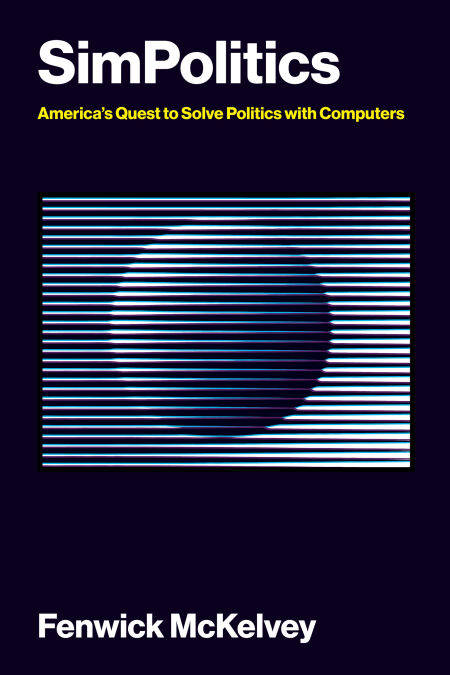
- Afhalen na 1 uur in een winkel met voorraad
- Gratis thuislevering in België vanaf € 30
- Ruim aanbod met 7 miljoen producten
- Afhalen na 1 uur in een winkel met voorraad
- Gratis thuislevering in België vanaf € 30
- Ruim aanbod met 7 miljoen producten
Zoeken
€ 69,00
+ 69 punten
Uitvoering
Omschrijving
How computer models became fundamental to political practice—from winning elections to global affairs—and how we imagine political futures as a computing problem.
For more than six decades, the public has been promised that computers will revolutionize politics, both nationally and internationally. In SimPolitics, Fenwick McKelvey traces the entwined history of politics and computers from the 1960s to the late 1980s. He shows how programmers, consultants, academics, political scientists, and peace activists all worked—sometimes in tandem, sometimes not—to build simulations to win campaigns, predict coups, forecast the future, and render politics as legible as a spreadsheet.
Drawing on novel archival and historical research, McKelvey recounts the history of efforts to simulate politics by building models of elections, voters, and international relations. Comparing attempts in the United States to simulate domestic electoral politics and international affairs, he reveals the unexamined connections and conflicts between the two projects. His book provides a helpful guide to taking stock of exaggerated claims that AI and technology will fix politics, while presenting the long history of such promised technological fixes.
For more than six decades, the public has been promised that computers will revolutionize politics, both nationally and internationally. In SimPolitics, Fenwick McKelvey traces the entwined history of politics and computers from the 1960s to the late 1980s. He shows how programmers, consultants, academics, political scientists, and peace activists all worked—sometimes in tandem, sometimes not—to build simulations to win campaigns, predict coups, forecast the future, and render politics as legible as a spreadsheet.
Drawing on novel archival and historical research, McKelvey recounts the history of efforts to simulate politics by building models of elections, voters, and international relations. Comparing attempts in the United States to simulate domestic electoral politics and international affairs, he reveals the unexamined connections and conflicts between the two projects. His book provides a helpful guide to taking stock of exaggerated claims that AI and technology will fix politics, while presenting the long history of such promised technological fixes.
Specificaties
Betrokkenen
- Auteur(s):
- Uitgeverij:
Inhoud
- Aantal bladzijden:
- 372
- Taal:
- Engels
- Reeks:
Eigenschappen
- Productcode (EAN):
- 9780262053204
- Verschijningsdatum:
- 22/06/2026
- Uitvoering:
- E-book
- Beveiligd met:
- Adobe DRM
- Formaat:
- ePub

Alleen bij Standaard Boekhandel
+ 69 punten op je klantenkaart van Standaard Boekhandel
Beoordelingen
We publiceren alleen reviews die voldoen aan de voorwaarden voor reviews. Bekijk onze voorwaarden voor reviews.








